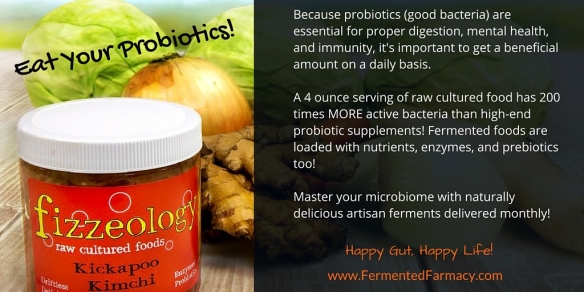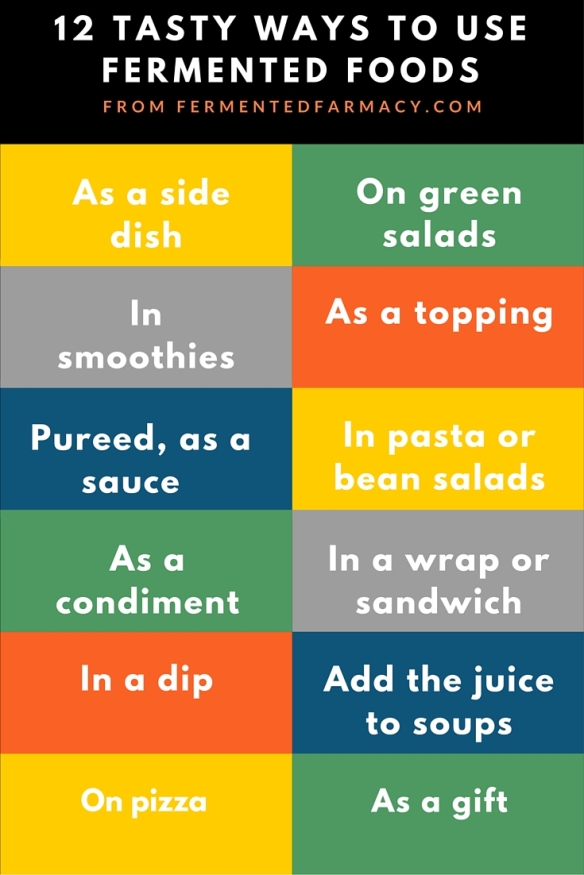
New research is uncovering an often-overlooked aspect of athletic training that may in fact be a secret weapon to peak performance: the health of our microbiome.
The good news is that the vast majority of these microorganisms—around 85% in a healthy microbiome—have a helpful, symbiotic relationship with our body. In other words, we provide them with food and a place to live, and in return, they help to support our health in a myriad of ways. From balancing our blood sugar and regulating our emotions to helping with digestion and boosting our immune function, friendly flora perform countless functions in our body that benefit our health and well-being.
5 Ways Probiotics Benefit Athletes
Everyone needs a plentiful supply of good bacteria (aka probiotics) for optimal health, but probiotics can be especially beneficial for athletes. And the good news? It works both ways—not only do probiotics boost athletic performance, but athletes tend to have healthier and more diverse microbiomes than non-active folks1.
So, how do probiotics help the athlete in all of us? Probiotics can:
1. Strengthen your immunity. With 80% of your immune system in your gut, it’s no wonder that the good microbes living there help to regulate immune function. But, endurance exercise and heavy training can suppress your immune system, leading to upper respiratory issues that could keep you from training2. Fortunately, studies show that regularly consuming fermented foods can reduce the incidence, severity, and frequency of these types of health issues in athletes3. In one study, researchers discovered that concentrations of immune and antibody agents—which often decrease during intense training—returned to normal levels after just one month of increased probiotic intake4.
2. Boost your antioxidants. Due to the increased amount of unstable molecules—or oxidative stress—produced during endurance exercise, heavy training can overwhelm the body’s innate ability to counteract, leading to cell damage and health challenges. The good news is that regular consumption of fermented foods can increase antioxidant levels in athletes, effectively neutralizing the free radicals5.
3. Increase your energy and endurance. By improving nutrient absorption and optimizing digestion, the probiotics and enzymes in raw cultured foods help you assimilate all the healthy nutrients in the foods you eat, so you have the energy you need to train. Some strains of beneficial bacteria also produce short chain fatty acids that provide an additional source of energy for working muscles6. Did you know that probiotics can also improve your endurance? It’s true! In one trial, researchers discovered that a month of regular probiotic intake increased runners’ time to fatigue in extreme heat7.
4. Reinforce your gut lining. High-intensity exercise can lead to gastrointestinal flare-ups like temporary diarrhea, cramps, bloating, and gas. Scientists theorize that these uncomfortable occurrences are likely due to increased permeability of the gut barrier, which enables toxins and unwanted bacteria to slip into the bloodstream. Fortunately, probiotics work with your own cells to line and reinforce your gut barrier, blocking out molecules that can keep you from training at your best8.
5. Reduce temporary inflammation and support bone health. Exercise in and of itself can lead to temporary inflammation as overworked muscles repair and heal. By reinforcing your gut barrier, regulating your immune system, and secreting short-chain fatty acids, probiotics can modulate your body’s inflammatory response, speeding recovery time so you can train at your best9. Probiotics can also support your bone and joint health by synthesizing vitamins that help metabolize calcium, and by producing enzymes that can increase mineral absorption10.
Now that we know all the ways probiotics can work to improve athletic performance, how do we incorporate them into our training?
Probiotics for Athletes
Unfortunately, the good bacteria in our microbiome are under constant attack from modern factors like processed foods, antibiotics in the food supply and as medicine,antibacterial cleaners, overzealous hygiene habits, and even stress and aging.
So, to feel and function our best, we must proactively (and consistently) replenish the good guy bacteria throughout our body. The most effective way to introduce probiotics into your training regimen is to eat nutrient dense, raw, cultured foods.
Eat Your Probiotics
Fermented vegetables not only provide a wider variety of beneficial bacteria than probiotic supplements, they also provide far more of them. The highest level of colony-forming units found in supplements is 10 billion. Fermented veggies, however, can produce 10 trillion colony-forming units of bacteria. That means one serving of fermented veggies provides the same benefit as an entire bottle of high-potency probiotics.
Fermented Farmacy makes is easy for athletes to get the most delicious probiotic and enzyme-packed cultured foods through their subscription service. By subscribing, you not only get the best tasting, sustainably-sourced ferments without the hassle of making your own, you also get them at a greater discount than you can find anywhere else!
Fermented Farmacy delivers every month. One quart of Kickapoo Kimchi or Seasonal Ferment has enough 2-4 ounce daily servings to last the average athlete one month. These ferments are uniquely formulated to include a variety of not only probiotics, but powerful prebiotics and medicinal herbs, like organic turmeric and liver-cleansing burdock. They are also gluten-free and vegan!
Master Your Microbiome
In addition to regularly consuming fermented foods, eating a whole foods diet, high in plant-based foods (and rich in prebiotics) while steering clear of chemicals, unnecessary medications, antibiotics, and toxins that can deplete your populations of good bacteria will go a long way towards supporting optimal microbial health.
We all have an inner athlete that strives to be the best we can be. Whether you are a champion marathoner, or you count your daily exercise in the number of minutes spent chasing your toddler in the yard, the health of your microbiome is a critical determining factor in both the quality and quantity of your training. Living a gut-healthy life that is in harmony with your microbes can keep you at the top of your game, if not at the top of the podium.

1. Clarke, S. F., Murphy, E. F., O’sullivan, O., Lucey, A. J., Humphreys, M., Hogan, A., . . . Cotter, P. D. (2014). Exercise and associated dietary extremes impact on gut microbial diversity. Gut, 63(12), 1913-1920.
2. Gleeson, M. (2015). Immunological aspects of sport nutrition. Immunology and Cell Biology, 94(2), 117-123.
3. Haywood, B. A., Black, K. E., Baker, D., Mcgarvey, J., Healey, P., & Brown, R. C. (2014). Probiotic supplementation reduces the duration and incidence of infections but not severity in elite rugby union players. Journal of Science and Medicine in Sport, 17(4), 356-360.
4. Clancy, R. L. (2006). Reversal in fatigued athletes of a defect in interferon 𝛾 secretion after administration of Lactobacillus acidophilus. British Journal of Sports Medicine, 40(4), 351-354.
5. Martarelli, D., Verdenelli, M. C., Scuri, S., Cocchioni, M., Silvi, S., Cecchini, C., & Pompei, P. (2011). Effect of a Probiotic Intake on Oxidant and Antioxidant Parameters in Plasma of Athletes During Intense Exercise Training. Current Microbiology, 62(6), 1689-1696.
6. Mach, N., & Fuster-Botella, D. (2016). Endurance exercise and gut microbiota: A review. Journal of Sport and Health Science.
7. Shing, C. M., Peake, J. M., Lim, C. L., Briskey, D., Walsh, N. P., Fortes, M. B., . . . Vitetta, L. (2013). Effects of probiotics supplementation on gastrointestinal permeability, inflammation and exercise performance in the heat. European Journal of Applied Physiology, 114(1), 93-103.
8. Lamprecht, M., & Frauwallner, A. (2012). Exercise, Intestinal Barrier Dysfunction and Probiotic Supplementation. Acute Topics in Sport Nutrition Medicine and Sport Science, 47-56. doi:10.1159/000342169
9. Lescheid, D. (2014). Probiotics as regulators of inflammation: A review. Functional Foods in Health and Disease, 4(7), 299-311.
10. Parvaneh, K., Jamaluddin, R., Karimi, G., & Erfani, R. (2014). Effect of Probiotics Supplementation on Bone Mineral Content and Bone Mass Density. The Scientific World Journal, 2014, 1-6.

